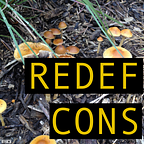Preserving Language, Conserving Land
Conservation and culture intersect at critical junctions: food, religion, poetry, etc. One that many of us don’t think of immediately is language. After all, for me, most of the conservation literature I read is in English. Journals and articles may discuss people in lands where other languages are dominant, but they rarely do so in those languages. With the spread of the Internet and globalized trade, certain languages are becoming dominant at the expense of others. A pre-Babel world of easy communication may seem ideal, and in some ways it would be. However, like neighborhood blocks lined with only elm trees, homogeneity of language also has vulnerabilities.
According to the Endangered Languages Project, over 40% of languages across the world are endangered. The high correlation between languages spoken in a given area and biodiversity levels indicates that language and species will often be disappearing together. Of course, places with high extinction rates are the places where we need language the most. Local languages contain the knowledge of a place. Both taxonomies and traditions can be lost in translation — that is, while there is still dialogue to translate. Words embody medicinal qualities, management techniques, histories, landscape changes (especially important in an era of climate change), recipes, nuances, warnings, and cultural values. Words form a constellation of meaning that mirrors the fundamental nature of a place.
This is where conservationists have been known to get into trouble. In a desire to protect an ecosystem, they access local or indigenous knowledge. They explore a place, bring back the benefits to already prosperous countries, and fail to share profits with the people who guided them. They use local information to prioritize lands to conserve but then do not allow the local people on that land. They forget that the languages they are depending on and the land they are protecting is more than language and land; they are cultures, histories, and people. Just as the land should not be abused, languages should not be exploited.
Many conservation organizations have implemented standards for working with communities. They ensure that they get consent in fair ways, and they use conservation benefits for anti-poverty initiatives. And, these policies are not formalities. They are a form of respect for the people who hold essential knowledge for the future of the planet and everyone on it. In order to unlock this future, we must be willing to confront and learn from our problematic past.
To conserve land, we must preserve language. But first, we must be critical of ourselves and our methods so that we can do it well.
*******************************************************************Thanks for reading! If you liked it, please tweet @redefcons or recommend! Originally published at redefineconservation.com.
